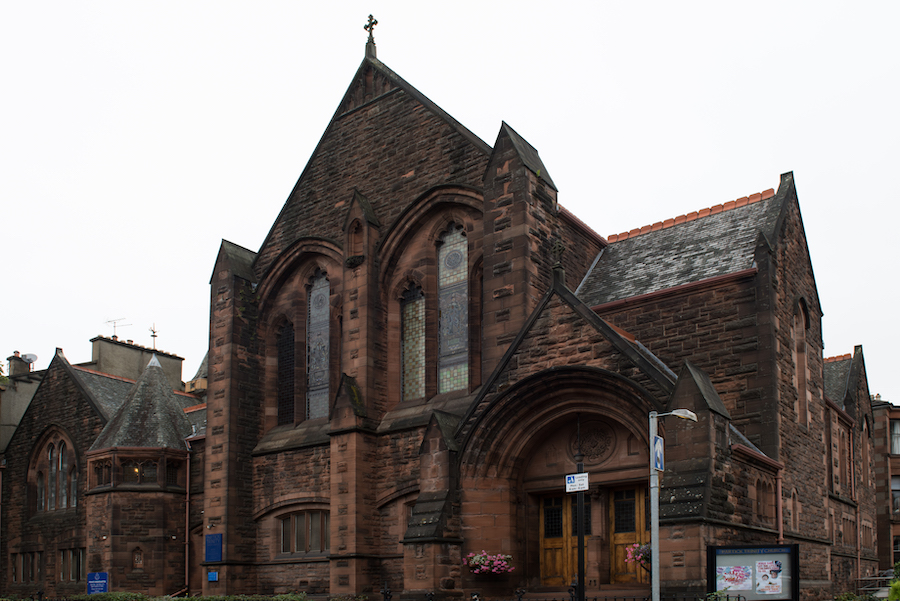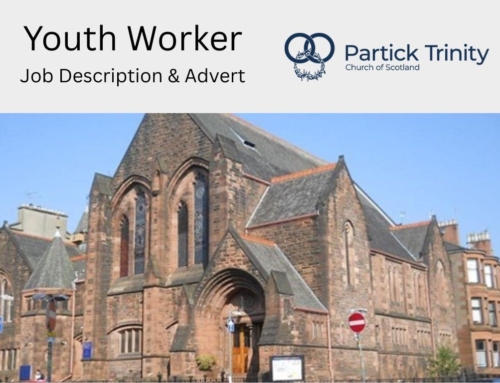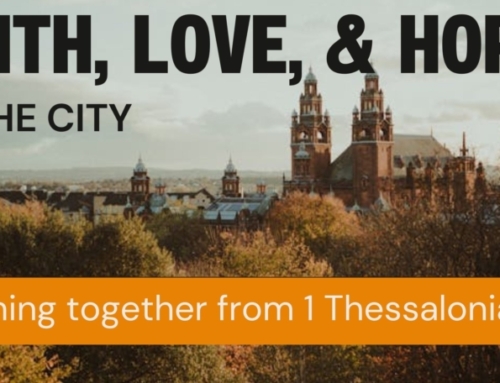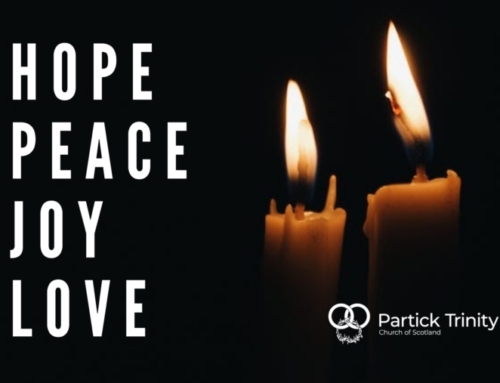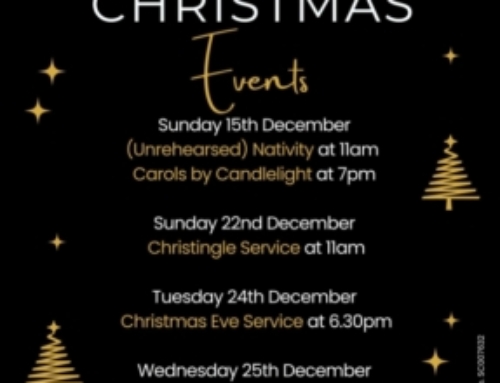Stated Annual Meeting – 14th May 2023
Dear friends,
Formalities, finance, and the future
This Sunday is our Stated Annual Meeting (SAM). We’re required to have a SAM, amid the shifting sands of Church Law and Charity Law, not very much is expected from it. The congregation are presented with the previous year’s accounts (looking backwards) and budget (looking forwards), which have been approved by the Kirk Session. In short, the SAM can be reduced to something that’s formal, financial, and rather dull.
This is not altogether helpful. It threatens to dampen the dynamic that is at the heart of our church’s life: that we have brought in God’s family by his grace and for his glory. My hope is that this Sunday, SAM included, might be an opportunity for us to reflect on what it means for us to live out that calling. I am not writing this to diminish the importance of finances, but to set them in a context in which their relevance is more obvious.
The formal accounts are set out in a format prescribed by Law (by accountants, for accountants!) which is not altogether user-friendly.[1] I’m grateful to our Treasurer and Finance Team who prepare our formal accounts and then help the Kirk Session, as Trustees, to make sense of them, so that we can steward what we have been given. We’ll take time on Sunday to tease out our current financial position in terms that I hope will make sense for everyone.
Looking back, through ongoing giving and drawing upon our reserves (the giving of the past), we have done more than cover our basic (though rising) costs. We have fulfilled our obligations to the Church of Scotland (we pay into the central pot, which in turn pays for local Ministers) and our Presbytery. We have invested in our buildings, and we continued to employ staff locally (Youth & Children’s Outreach Worker, Caretaker, Church Facilitator), as well as supporting partners in mission and ministry in Scotland and abroad. However, looking ahead, it will be at first difficult, then impossible, to maintain such levels of spending or adequately support new initiatives without an uplift in income or something else changing.
Across the Church of Scotland, long-term trends show a decline in church membership, participation, and giving, accelerated by the pandemic. This presents the CoS with a new and challenging financial situation. It seems likely that there will be fewer congregations capable of paying their way, and there will be a significant reduction in the number of ministry posts.
When we start thinking about national trends, it can become overwhelming. Our starting point must always be to return to the personal invitation and command of Jesus: follow me! Whenever someone joins the church, we ask them to make commitments that I remember making when I was twenty-one. Whatever is happening at national level, I don’t think that we are asked to do any more than honour those commitments. So let me take one of those membership questions and consider its implications for us as we think about our finances and the future.
‘Do you promise to give a fitting proportion of your time, talents, and money for the Church’s work in the world?’
Almost every word in this question invites further questions.
Take time, for example. Busyness and laziness, our own needs and wants, and the needs and wants of others can leave us clawing for pockets of time, far less that elusive ‘quality’ time – those unhurried, undistracted moments for ourselves, or for others, or for God. So how exactly are we to parcel out our time? Where does ‘the Church’s work in the world’ figure in the competing claims of work and home life, family and friendships, and rest? The Bible talks about rest – God commands it – yet church life threatens to swallow every spare moment. Is it time well spent?
It is hard to think about time without thinking about talents. Sometimes there can be a mismatch between our experience and skills, and what the church is trying to do. You might think, ‘My DIY skills are in high demand at home but never called upon by the church’, or ‘I love meeting people and making connections, but my best (only?) opportunities for that happen away from the church.’ Or we might question whether we are cut out to contribute. Like Moses, we ask, ‘why send me?’
Or for that matter, why my money? Earlier this year we looked at 2 Corinthians 8-9 and Paul’s attempt in those chapters to set out a theology of generosity. For Paul, the overwhelming beauty of God’s generosity, displayed in the gift of God’s own Son, Jesus, and the richness of Jesus’ self-giving love, leave little for stinginess or entitlement. Instead, we are invited to be rich in generosity (rather than rich through accumulation). We’ve all had recent experiences of buying fuel or food, or reading our utility bills, with a mixture of surprise and horror (how much?!). We cannot ignore the depths of privation endured by others less well-off, and those caught up in war or disaster elsewhere. In the context of all that, what is a fitting proportion of my money to give? And is giving money to ‘the Church’s work in the world’ money well spent? Is Church as we know it affordable?
The key phrase in all this is the Church’s work in the world. What are we, Partick Trinity, supposed to be doing? Without an answer to that question, we’ll struggle to respond to the questions above.
A few years ago, the elders took time to consider basic questions about our purpose as a church, and about what matters. These were presented to the congregation and appear on our website as our purpose and value statement.[2] They don’t prescribe what we should and shouldn’t be doing, but they offer a way of evaluating the things we already do and the things we might plan to do in the future. I can see, for example, the ways in which Kidz Club enables us to make God known to primary school-aged children and gives us an opportunity to welcome others and show God’s love. If someone suggests a new outreach, we should first look at how the proposal squares with what God has called Partick Trinity to be and do, and then look to God for all that we might need (Time, talents, money) to make it happen.
Our finances (or for that matter our buildings) enable us to do so much and yet could become a source of frustration and worry. But these resources are a gift from God, and God invites us to depend upon him in every circumstance. We may be entrusted with more or with less than we had in the past, but God remains the same. Individually, let’s continue to give a fitting proportion of what we have, our time, talents, and money (you can do no more than that!) and together ask God for what we lack – not least wisdom about how best to use and steward those gifts.
I ask you all to prayerfully consider the above challenges, and what initiatives might have to stop or begin to enable us to respond to God’s call. Where do our resources constrain us? How might you play your part? What opportunities lie ahead, and how can you be involved?
Sunday is our annual meeting, but these are not once-a-year questions. But I invite you to take this opportunity to think them over, talk about them with others, and set them before God in prayer.
With love and prayers,
Tim
Minister
[1] Accounts for the year ending 31st December 2022 can be viewed at http://particktrinity.org.uk/Documents/2022Accounts.pdf
[2] https://particktrinity.org.uk/index.php/who-we-are/


